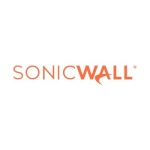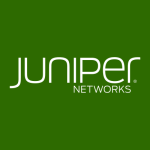What is our primary use case?
I am in IT. I use pfSense for my personal use. I use it to practice networking and understand how networks work. I apply all the networking-related things that I have learned to pfSense at home.
I also use it to isolate my IoT network from my regular network and from the devices I use for the cameras.
The main reason for implementing pfSense is that I like playing games. With pfSense, I can place quality control over the traffic traversing over the WAN connection or the Internet. I am able to prioritize and limit some devices to allow me to have a better connection to the Internet than some devices in our house.
How has it helped my organization?
pfSense is a flexible solution. It has features for setting devices into groups. I was able to group up the devices in our house to be able to set some restrictions on some devices and have full restrictions on other devices. It allowed me to control my kids' devices to limit access to the Internet to a certain time. It automatically stops on the Internet for those devices when that time comes.
pfSense gives a single pane of glass management in regard to the network. I was able to control everything in my network, which is good.
I use pfSense Plus. I got third-party hardware, not with pfSense, but I purchased the license to have a pfSense Plus version. That hardware went down a few days after I bought the license. I created a ticket, and the engineer allowed me to move it to another device because I had just recently purchased it. Thanks to them, I was able to have less downtime because I did not have extra money to purchase another license. I was able to bring it up as fast as possible. The backup and recovery of the configuration is very pretty easy. I just reuploaded the file and updated two lines of code, and that was it. Everything worked.
Everything works well. My streaming is working fine. My kids do not complain about any lags. I can play my games without having any issues. I do not experience any lags. When my wife is working, she does not have any problems downloading or uploading files back to her work. We are pretty happy with the performance.
What is most valuable?
For me, the firewall is most valuable because I can play around with the firewall. That is the best asset for me. I can limit what I want to limit, and I can open what I want to be open.
I like the versatility of pfSense. Compared to other products I have used for home and small businesses, this is the easiest to understand. It has enterprise features compared to, for example, Ubiquiti UniFi. Their router is limited to some features, whereas with pfSense I can do, for example, routing and dual WAN. I also have several VPN options.
What needs improvement?
It has a lot of features, but I wish there were even more features. Some of the features I am looking for are still not there in pfSense, like, for example, content control. Because I have kids, I want to control the content or what they watch. There is a feature in pfSense called pfBlocker, but it is limited. If I set that up, it is blocked by an IP address. Sometimes my devices are borrowed by my kids. They are able to get a full connection to the Internet, but their devices are limited. If content blocking is added to pfSense, it would be great. If I can block content by a user, that will be a preferred solution.
The frequency of feature releases can be better. We have been waiting for some of the features for a while, but they have not been released. I know they prioritize what is used in the enterprise area, and then they provide some features for regular consumers like me. If they can balance that 50:50 and focus equally on the enterprise and consumer suggestions, it will be great.
The interface and support are perfect for me. I saw a post on their blog that they will be moving to the Linux operating system. Hopefully, they would have better wireless because the wireless for pfSense is horrible or horrendous. If they move to Linux, hopefully, they will improve it.
For how long have I used the solution?
I have been using pfSense since 2020. It has been four years now.
What do I think about the stability of the solution?
It is very stable. I would rate it a nine out of ten for stability.
What do I think about the scalability of the solution?
It is scalable. I would rate it a nine out of ten for scalability.
We are a family of five. Five of us are connecting to the pfSense Internet.
How are customer service and support?
They are great. They are perfect for me.
How would you rate customer service and support?
Which solution did I use previously and why did I switch?
I have used TP-Link and Ubiquiti EdgeRouter. In regards to features, the two are on par. They are way behind pfSense. pfSense is way ahead of these two in terms of what it could offer. In terms of security, TP-Link is very bad, EdgeRouter is in the middle, and pfSense is way ahead. In terms of performance, TP-Link is worse, and EdgeRouter and pfSense are neck to neck. I prefer pfSense over others.
How was the initial setup?
I installed it on third-party hardware. The longest period of initial configuration was when I deployed it for the first time. After that, it is very fast because I can back up my config and restore it if I break something.
It took an hour or two for all the installation and configuration.
In terms of maintenance, it requires regular updates. That is the only maintenance that it needs. I also need to monitor if any known or zero-day bugs are found in pfSense. I am watching that because pfSense is the device facing the Internet, so I need to be always alert about any zero-day bugs. I also need to be mindful of the configuration to not accidentally expose any ports. These are the three things required in terms of maintenance.
What was our ROI?
In four years of using it, that payment of 189 dollars per year has already paid off. Over these years, I only experienced it going down two or three times, which is less than 1% downtime per year.
What's my experience with pricing, setup cost, and licensing?
It is cheap. If you are a technical person, it is a pretty cheap solution because first of all, the Community Edition (CE) is free. I am in Australia, and my pfSense license is about 200 dollars. It is not bad because it is per year and not per month. It is cheap compared to other solutions.
I am not using the hardware. I am using the software. It is very cheap. It does not cost me a lot. The only cost is just the one-year payment. If I need extra hardware, I need to purchase that from the third party whose hardware I am using.
What other advice do I have?
I would recommend pfSense to others. I already recommended it to my boss, and he is using it now. He is loving it as well. It is easy to use, and there are a lot of resources available. If you have any problem, someone would have already encountered that problem and found a fix, so it is easy to fix based on that. It is very reliable. The downtime experience is very low. It is almost zero.
I would rate pfSense a ten out of ten.
Which deployment model are you using for this solution?
On-premises
Disclosure: PeerSpot contacted the reviewer to collect the review and to validate authenticity. The reviewer was referred by the vendor, but the review is not subject to editing or approval by the vendor.



















